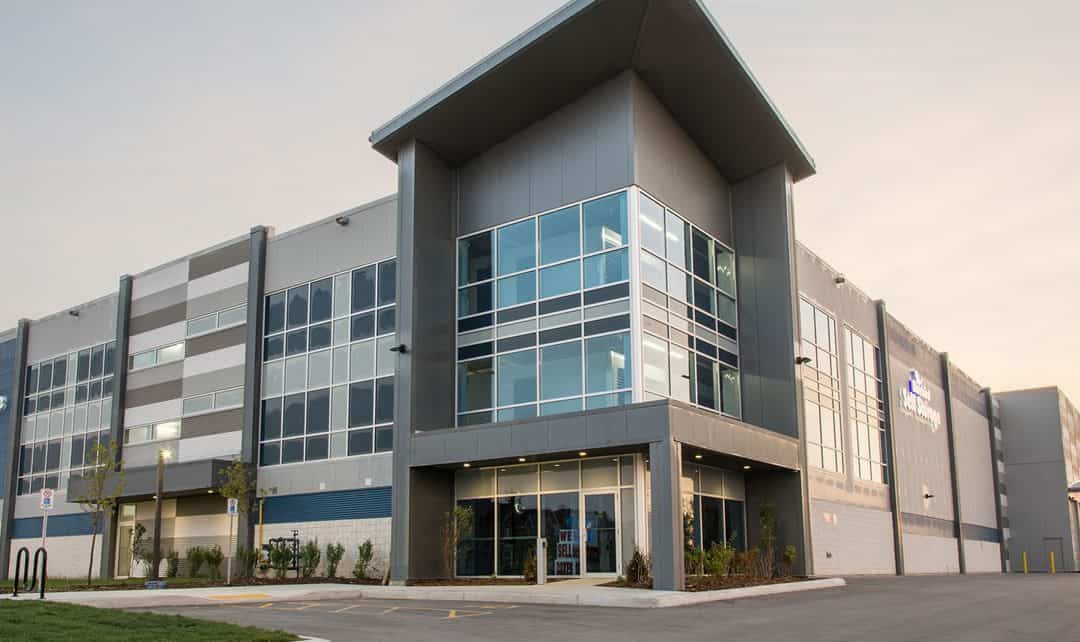“Nobody knows what the potential is for self storage in Canada,” says Reade DeCurtins, managing principal at Bluebird Self Storage. But he says the country is underserved with Class-A self-storage facilities and “there’s a tremendous runway available for Canadian self-storage development.”
His company currently operates four self-storage properties in Ontario and has built, owned or operated 25 facilities in Ontario and more than 80 others in the United States, where the market is much more saturated.* Bluebird estimates that the U.S. has approximately nine square feet of storage per person in the 25 largest markets, and about seven square feet per person overall. But in Canada, it’s about three square feet per person.
In the Greater Toronto Area, with a population of 6.4 million, Bluebird estimates that the market could handle an additional 224 self-storage properties of 100,000 net rentable sq. ft.
DeCurtins says Canadians are not as transient as U.S. residents and that Canada does not have as many military transfers. But the market for storage space in Canada is growing. Bluebird is partnering with private investors and hopes to build a portfolio with $1 billion in assets under management during the next five years.
The company has several new locations under development in the GTA and is looking for opportunities across the country in large markets such as Calgary and Montreal.
Recently Bluebird purchased the former National Post office building on Don Mills Road, a block away from the Toronto Real Estate Board offices. It was purchased for $22 million and Bluebird intends to convert the 154,800 sq. ft. building into a storage facility with 1,491 units of various sizes, suitable for residential and commercial tenants. This will cost an estimated $20.4 million, including gutting the interior HVAC and electrical systems and replacing the building’s large atrium skylight with a flat metal roof.
The company projects an internal rate of return of 19.5 per cent per year during the six-year investment period, with occupancy expected to stabilize at 86 per cent in the fifth year. The property could then be sold at a price of $65 million, according to company projections.
A large parking lot behind the building may be severed and sold, or it could be converted into one-storey drive-up storage units, DeCurtins says.

Bluebird strives to make their front offices inviting and pleasant for visitors. It offers free coffee and Wi-Fi.
Bluebird also recently built a new facility at 411 Cityview Blvd. in Vaughan, just north of Toronto. It purchased the vacant land for $4,592,500 and with a capital injection of $15.42 million, constructed a building with 105,150 NRSF and 1,083 units. Its annual rent is $24.64 per sq. ft. and the cap rate is 5.5 per cent. It expects occupancy to stabilize at 90 per cent in year five. Bluebird forecasts it will sell it for $34,450,000 in 2021.
Managing principal Jamie Bennett, who has been in the self-storage business in the U.S. for more than 30 years, says Bluebird has “many tools in our shed that our competitors don’t have.” For one thing, the new Bluebird facilities offer year-round climate control. Many of their competitors say they have heated facilities but few offer air conditioning in the summer months, he says. The humidity from Canada’s hot summer months can do a lot a damage to some materials in storage, he says.
DeCurtins says Bluebird is also working to overcome the “tin and barbed wire” stereotype of storage facilities. The company’s goal is to create buildings that are more retail than warehouse, with a welcoming front office that includes free coffee and water and a pleasant seating area with free Wi-Fi. The corridors are kept clean and well-lit and have coloured directional strips to help clients navigate to their unit.
Bennett says by building modern facilities in high-profile retail areas, the company can afford to charge top dollar for their storage rates. Residential users represent 65 to 85 per cent of clients, with most living within five square km of the facility.
Bluebird also partnered with Life Storage, a Buffalo-based firm that provides third-party management platforms. Life Storage has developed a digital self-service app that allows customers to skip the counter and rent a storage unit immediately. All the paperwork is done on the app. Customers can then go to the storage facility, even after hours, and enter with a personal access code. Inside the building, their app will direct them down the hallways to their unit.
- These numbers have been corrected from a previous version of this story.
Jim Adair is the Founding Editor of REM Real Estate Magazine. Jim retired in 2022, after 33 years at the helm.


















